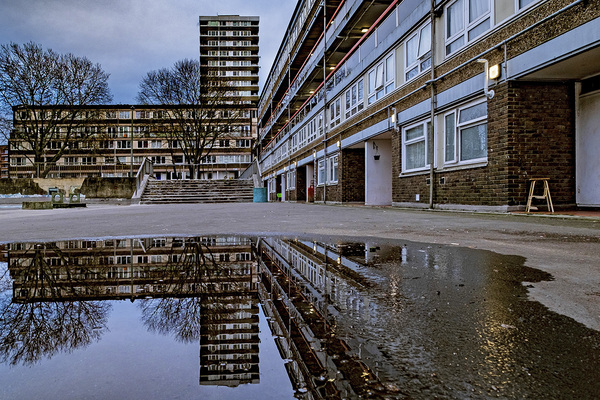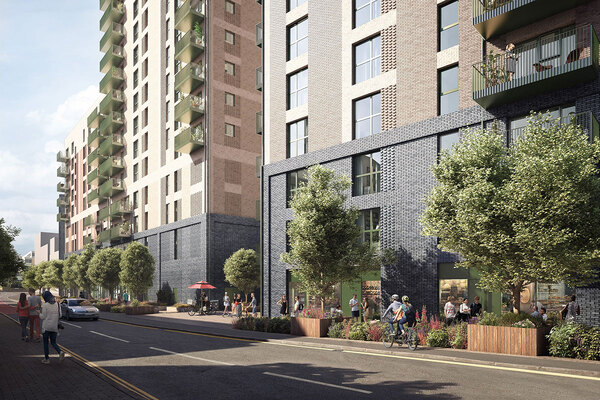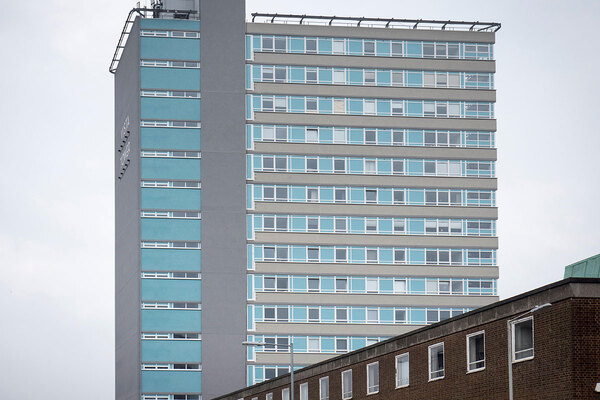You are viewing 1 of your 1 free articles
Why secure tenancies are needed to help build communities
Many housing associations are turning their back on fixed-term tenancies. Martin Wicks welcomes this and says secure tenancies are needed for stable communities
We have seen reports recently in Inside Housing of housing associations abandoning the use of fixed-term tenancies.
To counter this trend, Jo Barratt of Thrive Homes said that lifetime tenancies are from a bygone era and that going back to them would be a backward step.
She said fixed-term tenancies give housing associations “if used sensitively... greater control and management of assets” while providing residents with “the right home, in the right place, to meet their current needs”.
Back in 2010, the coalition government produced a consultation document entitled Local decisions: a fairer future for social housing.
It said: “Social housing – affordable and stable – should act as a springboard to help individuals make a better life for themselves.
“But all too often it can be a block on mobility and aspiration.”
A “scarce resource” that had to be focused on “those who need it most”. Then-housing minister Grant Shapps’ famous phrase was social housing is for “when it is needed, for as long as it is needed”. It represented “a safety net for people who are in difficulties”.
The phrase “those who need it most” (repeated by Ms Barratt) is drawn from the austerity lexicon. What it has meant in relation to social welfare has been denying the provision of a service to many of those who need it.
What the phrase means for social housing is accepting the shortage and rationing what little there is. The failure to build council homes at the same time they’re being sold off under the Right to Buy means that those who need them are forced into the expensive, and often poor-quality, private rented sector.
Fundamentally, this view conceives of social housing as social welfare for the poor.
Ms Barratt appears to share this view. She says that her tenants are “custodians of the property for a period of time rather than a lifetime”.
“A time-limited tenancy inevitably impacts on how the tenant views the property and treats it”
What do fixed-term tenancies means for tenants?
However “sensitively” the end of a tenancy is handled there can scarcely be much worse than the prospect of being evicted.
A time-limited tenancy inevitably impacts on how the tenant views the property and treats it. Given the possibility of being forced to leave, why would tenants treat the property as their home? Why would they spend money on it if they have no guarantee of staying for the long term? Contrary to the much-touted opinion of the right-wing media, you don’t need to be a homeowner to look after your property.
With a secure tenancy the tenant knows that if you pay the rent and live in a civilised fashion, you have a home instead of a temporary lodging. Most tenants treat it accordingly.
The term ‘lifetime tenancies’ has been used by opponents of social housing to imply that there are tenants in it who should not be there. Strictly speaking, they are open-ended tenancies, secure tenancies to give them their proper name, which can be for life but are not necessarily so.
Any tenant who breaks the tenancy agreement can find themselves evicted.
What secure tenancies do is to provide tenants with genuine security, a home rather than a way-station. It is the longevity of tenants which helps create communities. Without such security then you are liable to find estates of ever-changing strangers rather than living communities where people look out for each other.
One of the reasons why landlords who introduced fixed-term tenancies are beginning to move away from them is because for their staff the reviews of tenancies are an onerous and time-consuming task.
While they remain in place then gradually secure tenants die out and the number of reviews necessary inexorably rise.
Contrary to the assertion made when fixed-term tenancies were introduced, secure tenancies are not a block on aspiration.
There is more chance of a tenant turning down a promotion because the extra money would take them above an earnings threshold, resulting in them being forced out, than would be the case with a secure tenancy.
“Fixed-term tenancies simply introduce insecurity into the lives of tenants at a time when many of them face insecurity in the workplace as well as the negative impact of welfare reform”
Threatening eviction only serves as a springboard to ownership insofar that the tenant might take up the Right to Buy option to remain in the property. Before Right to Buy, secure council tenancies did serve as a springboard to ownership in the sense that those tenants who were interested could save up a deposit to buy a home because rents were generally affordable and good value.
They would hand back the keys to the council and somebody on the waiting list would move in.
Fixed-term tenancies simply introduce insecurity into the lives of tenants at a time when many of them face insecurity in the workplace as well as the negative impact of welfare reform.
Our estates should not be treated like ghettos for the poor. Tenants should not be treated as objects of charity that can be moved around at will. We want stable communities not transient populations forced to move against their wishes. No council should have the power to evict tenants who have done nothing wrong and abided by the tenancy agreement.
The discretion of councils (and housing associations) to use fixed-term tenancies should be ended and secure tenancies should be applied to all tenants.
Increasing the council housing stock remains the key priority rather than rationing what little is available.
Martin Wicks, secretary, Swindon Tenants Campaign Group











